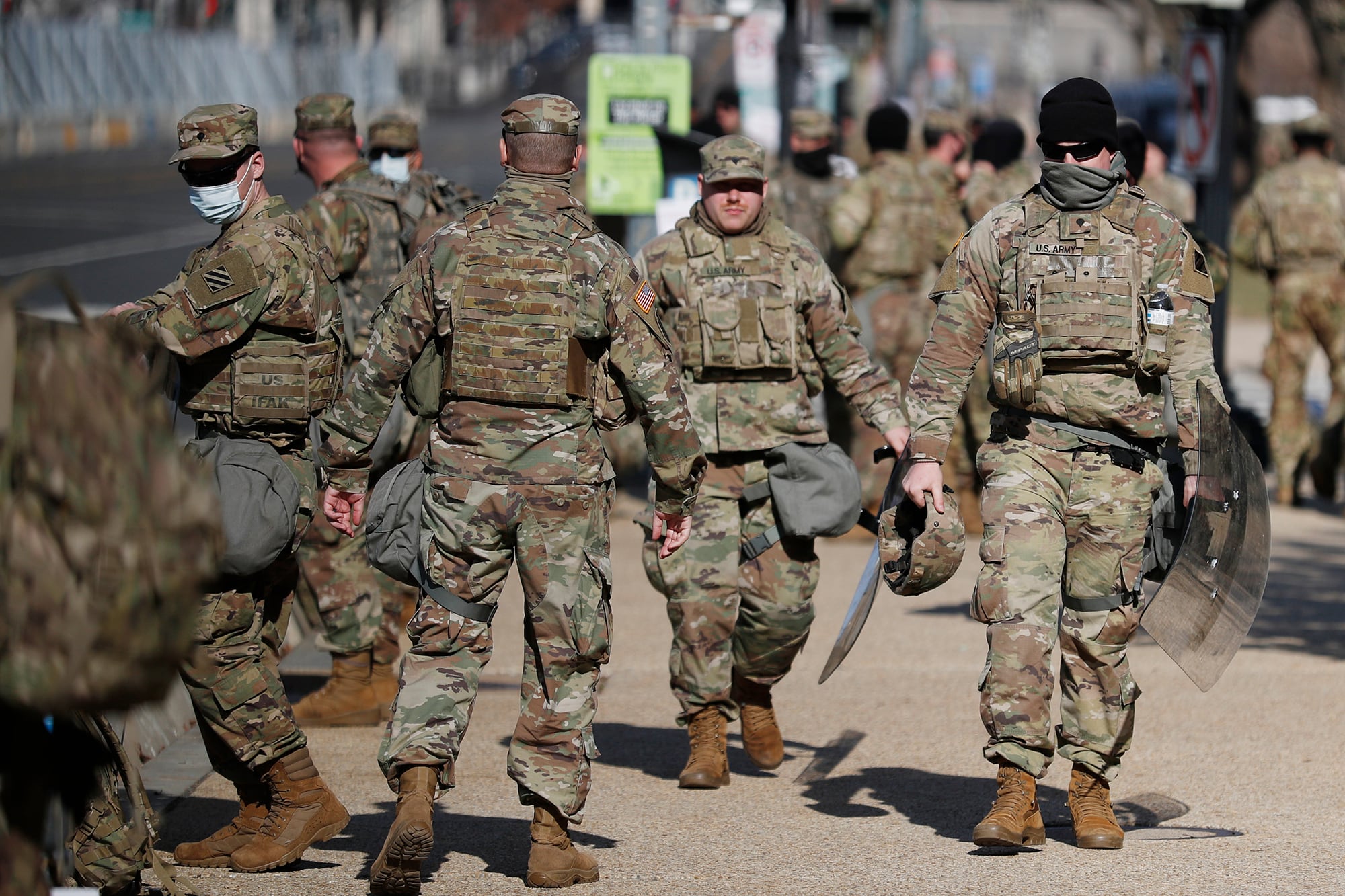The days and nights National Guard troops spent securing Capitol Hill will count towards time needed to qualify for GI Bill education benefits, according to a memo sent to lawmakers on Thursday.
In response to congressional questions about the troops’ deployment status and benefits eligibility, Maj. Gen. Eric Little, director of manpower and personnel for the National Guard Bureau, said troops participating in the ongoing Washington security mission will accrue time needed for Post 9/11 GI Bill payouts.
Typically, local and state missions for Guard members do not qualify for the education benefits, but Little noted the Capitol deployment is in response to a national emergency and supported by federal funds, allowing the more generous benefits distinction.
RELATED

Lawmakers hailed the memo as the proper way to recognize the service and sacrifice of the troops still patrolling the Capitol complex.
“While I am pleased that the National Guard members protecting our Capitol will be able to earn GI Bill benefits for their service, this confusion was another poignant reminder that too often servicemembers taking on the same risks as their active-duty counterparts aren’t getting the same benefits,” said Mark Takano, chairman of House Veterans’ Affairs Committee.
“We shouldn’t have to search for a justification to give the soldiers who fought fires, helped respond to the COVID-19 pandemic, and guarded our nation’s Capitol the benefits they have earned.”
The mission definitions could impact nearly 26,000 guardsmen who traveled to Washington in the wake of the deadly Jan. 6 attack on the Capitol building earlier this month, and their long-term education plans.
Under the Post-9/11 GI Bill, troops and certain family members can receive 36 months of in-state college tuition, a monthly living stipend and other payouts if they serve at least three full years on active duty.
Only a handful of guardsmen and reservists qualify for that, given their usual lack of time mobilized to active duty. But any service member who serves at least 90 days on qualified military duty is eligible for 50 percent of the full benefit, which still totals thousands of dollars in tuition payments.
That means troops who served a few weeks on Capitol Hill and previous time in other qualified missions could reach that 90-day total and receive partial education benefits.
D.C. National Guard officials announced this week that their Capitol Hill mission will continue until the end of March. Other Guard troops will be there through mid-March. Around 7,000 Guard troops are currently on duty, but that number will fall to around 5,000 over the next two months.
Troops activated for the entirety of the mission will be close to the 90-day threshold for GI Bill benefits on this deployment alone.
Little noted that the National Guard’s ongoing nationwide pandemic relief missions similarly qualify for education benefits. About 23,000 personnel are still at work on those assignments. However, guardsmen activated for crowd control in response to racial equality protests last summer did not qualify, because those missions were funded by state and local resources.
Rep. Mike Levin, D-Calif., worked closely with Takano on the Capitol Hill deployment issue and had authored legislation to eliminate the disparity between active-duty and Guard/Reserve work in regards to veterans benefits. He said the recent confusion should serve as a sign of the need for reform in the system.
“Members of the National Guard have made incredible sacrifices to defend our democracy, standing on high alert at the Capitol in freezing temperatures and often sleeping on cold, hard floors,” he said in a statement. “I’m glad they’re earning the GI Bill benefits they deserve during this deployment, but we shouldn’t have to rely on [outdated rules] to provide them.”
Last summer, the National Guard reach a record-high level of personnel activation, with more than 120,000 service members performing missions worldwide.
Leo covers Congress, Veterans Affairs and the White House for Military Times. He has covered Washington, D.C. since 2004, focusing on military personnel and veterans policies. His work has earned numerous honors, including a 2009 Polk award, a 2010 National Headliner Award, the IAVA Leadership in Journalism award and the VFW News Media award.




